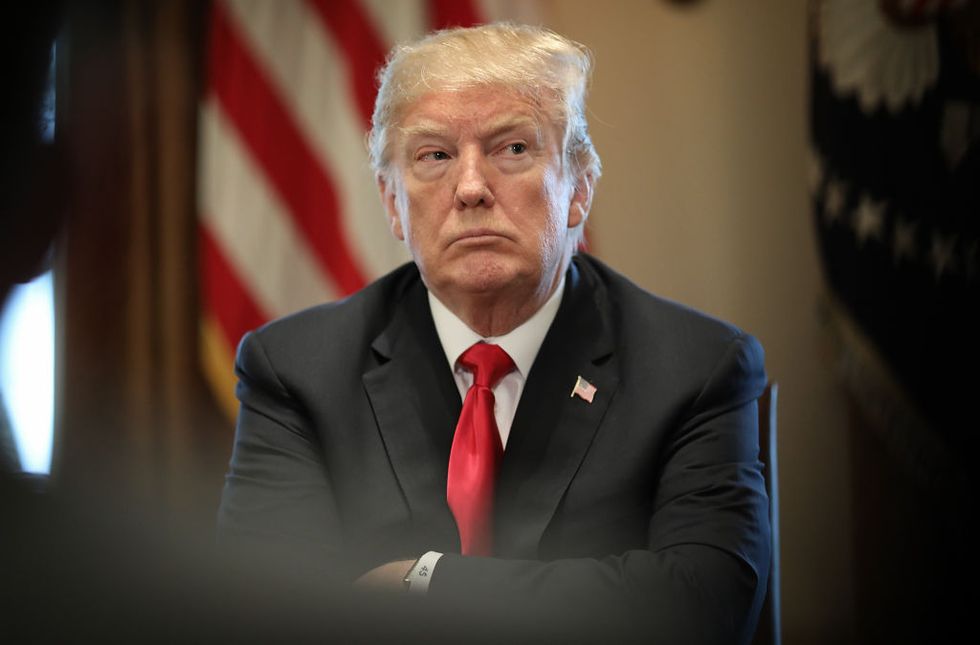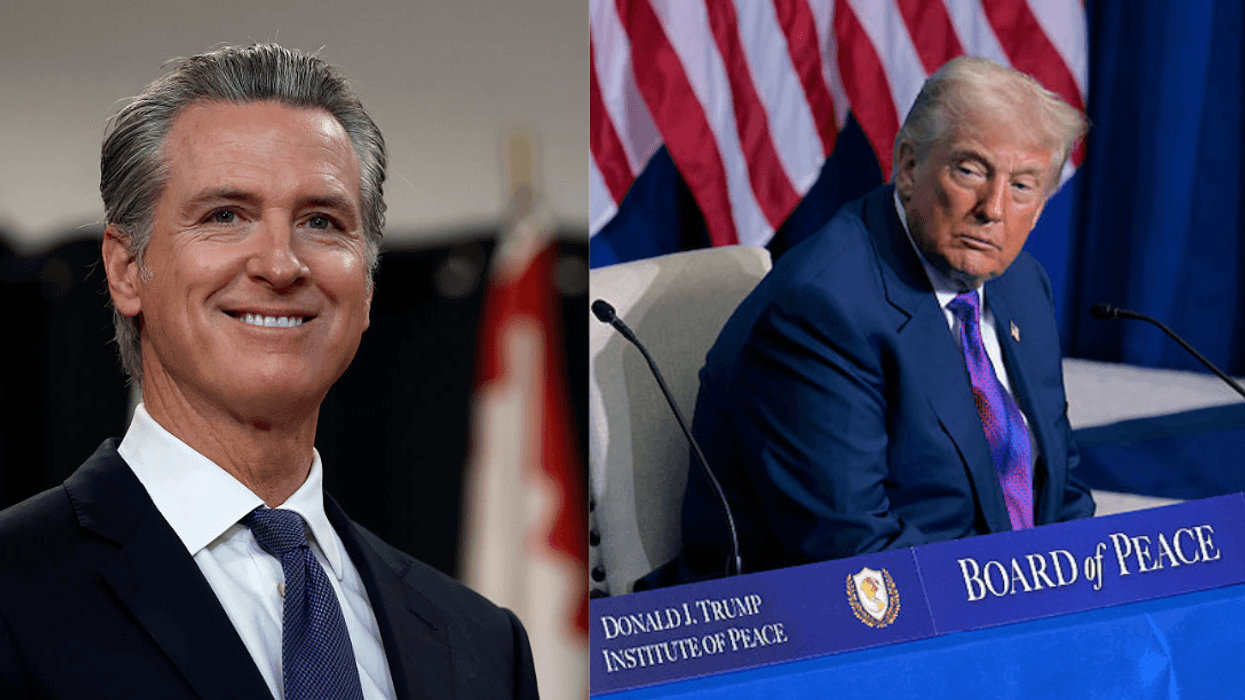On Thursday, President Donald Trump announced his administration plans to impose a 25 percent tariff on steel and a 10 percent tariff on aluminium. The United States’ primary trade partners reacted immediately, leading to speculation of a trade war that caused significant drops in global markets.
Canada, the European Union, and Great Britain vowed to introduce tariffs against US imports in response to the new tariffs. Mexico, China and Brazil also announced retaliatory steps being considered.
The Australian trade minister expressed concerns over a pending trade war as well as displeasure over an ally failing to speak to them before making such an announcement. Their remarks were echoed by many US allies.
But in a series of Tweets beginning in the middle of the night, Trump defended his decision.
The president did not address the stock market drops resulting from yesterday's announcement. Fears of a trade war of tit for tat with no end in sight prompted selloffs on Wall Street and in Asian and European markets, primarily impacting steelmakers and manufacturers supplying US markets the hardest.
Republicans joined the many voices criticizing Trump’s announcement Thursday.
“The speaker is hoping the president will consider the unintended consequences of this idea and look at other approaches before moving forward,” Doug Andres, a spokesman for Republican Speaker Paul Ryan of Wisconsin, said in a statement.
“We have concerns, obviously, about actions taken that would create retaliatory action by some of our trading partners and our competitors out there," said South Dakota GOP Senator John Thune, "so I think, you know, we would like to see the White House adopt a, sort of, pro-free-trade position.”
Conservative Senator Ben Sasse of Nebraska accused Trump of “a massive tax increase on American families” and of betraying GOP principles.
“Protectionism is weak, not strong. You'd expect a policy this bad from a leftist administration, not a supposedly Republican one,” he said.
Plenty of critics also took to the president's favorite form of communication, Twitter, to voice their own concerns. Some made connections to Russia as a motive for tariffs or a rebuttal of Trump's commitment to US steel.
Others focused on the poor economic outcome likely to result from the ill-advised move.
Trump's preference for Chinese steel over American made steel didn't go unnoticed either.
Comments came from both US and international sources.
A few Trump critics chose to just give a recap of the president's Friday morning.








 The Benny Show
The Benny Show





 @neilforreal/Bluesky
@neilforreal/Bluesky @savannahcat/Bluesky
@savannahcat/Bluesky @qadishtujessica.inanna.app
@qadishtujessica.inanna.app @v-ron/Bluesky
@v-ron/Bluesky @nelnelnellie/Bluesky
@nelnelnellie/Bluesky @beatlenumber9/Bluesky
@beatlenumber9/Bluesky @pinkzombierose/Bluesky
@pinkzombierose/Bluesky
 @theunobsolete/TikTok
@theunobsolete/TikTok @theunobsolete/TikTok
@theunobsolete/TikTok @theunobsolete/TikTok
@theunobsolete/TikTok @theunobsolete/TikTok
@theunobsolete/TikTok @theunobsolete/TikTok
@theunobsolete/TikTok @theunobsolete/TikTok
@theunobsolete/TikTok @theunobsolete/TikTok
@theunobsolete/TikTok @theunobsolete/TikTok
@theunobsolete/TikTok @theunobsolete/TikTok
@theunobsolete/TikTok @theunobsolete/TikTok
@theunobsolete/TikTok @theunobsolete/TikTok
@theunobsolete/TikTok @theunobsolete/TikTok
@theunobsolete/TikTok @theunobsolete/TikTok
@theunobsolete/TikTok @theunobsolete/TikTok
@theunobsolete/TikTok @theunobsolete/TikTok
@theunobsolete/TikTok @theunobsolete/TikTok
@theunobsolete/TikTok @theunobsolete/TikTok
@theunobsolete/TikTok
 @laysuperstar/TikTok
@laysuperstar/TikTok @laysuperstar/TikTok
@laysuperstar/TikTok @laysuperstar/TikTok
@laysuperstar/TikTok @laysuperstar/TikTok
@laysuperstar/TikTok @laysuperstar/TikTok
@laysuperstar/TikTok @laysuperstar/TikTok
@laysuperstar/TikTok @laysuperstar/TikTok
@laysuperstar/TikTok @laysuperstar/TikTok
@laysuperstar/TikTok @laysuperstar/TikTok
@laysuperstar/TikTok @laysuperstar/TikTok
@laysuperstar/TikTok @laysuperstar/TikTok
@laysuperstar/TikTok @laysuperstar/TikTok
@laysuperstar/TikTok @laysuperstar/TikTok
@laysuperstar/TikTok @laysuperstar/TikTok
@laysuperstar/TikTok @laysuperstar/TikTok
@laysuperstar/TikTok